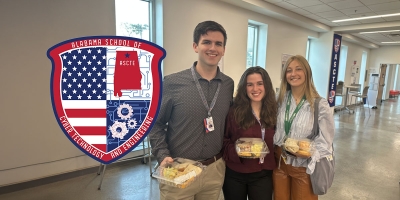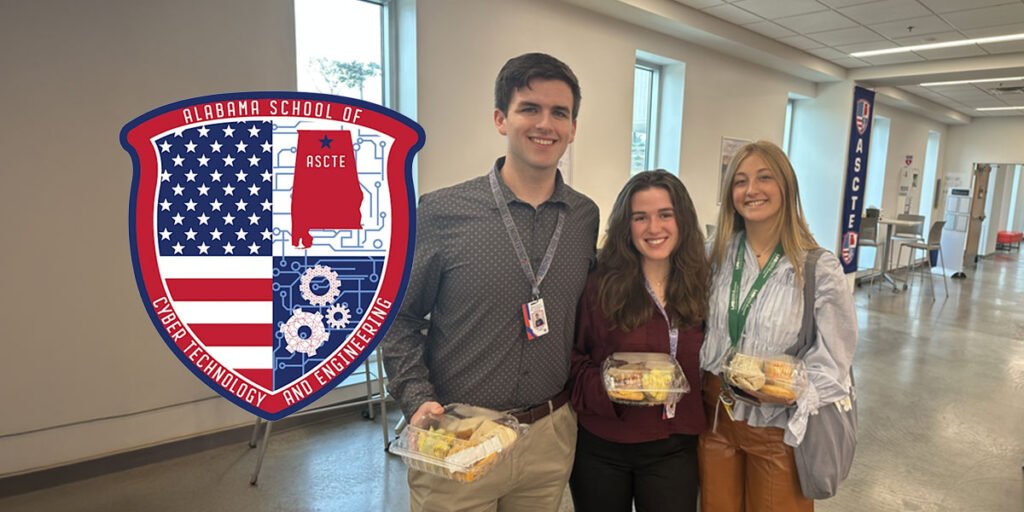
In eighth grade, Buddy Watson, living in a rural part of Alabama, expressed his passion for engineering to his coding instructor. This instructor mentioned an exciting opportunity: a new cyber and engineering school opening in Huntsville, a moment that really set his path in motion.
The Alabama School of Cyber Technology and Engineering (ASCTE) was the nation’s first public high school dedicated entirely to these fields. Watson was part of its inaugural freshman class.
Reflecting on his decision to attend this residential school, especially during the uncertain times of Covid-19, he recalled, “I probably couldn’t sleep for 72 hours. It’s about following dreams and taking risks.”
Fast forward three years, and it seems that risk has paid off. Now a sophomore at Mississippi State University, Watson is studying mechanical engineering and Russian while interning in his field. This experience is not unique to him; it mirrors the journeys of many of his classmates from ASCTE.
Shattering Traditional Norms
ASCTE stands out as a global leader in innovative education, attracting over 300 students across Alabama with a tuition-free model that incorporates cyber and engineering principles into every subject. In history classes, for example, students explore not just dates and battles, but the progress of technology itself. They engage in hands-on projects in robotics, coding, and system design alongside traditional academia.
Watson explained, “History was about more than just dates; we looked at the evolution of engineering from ancient innovations to more modern times. We studied how machines were created, their societal impacts, and even the history of coding and its dual role in both aiding and hindering people’s interests.”
Teachers at the school include subject matter experts from various industries who enrich the curriculum with real-world insights, covering areas like technical writing, social engineering, and even drone racing.
Widening Statewide Impact
The influence of ASCTE reaches beyond its Huntsville campus. Through the Accel program, specialized STEM curricula are being implemented in schools across Alabama, and the school has led efforts to develop a statewide AI curriculum for the Alabama Department of Education.
They’ve also introduced an “all-child approach,” focusing on the academic, social, and emotional needs of students. This model has garnered attention across the state, with ASCTE counselors recently conducting training sessions for peers in Alabama.
Watson stated, “When you fail, you have a community around you that supports you: it’s a culture of help. Everyone is here together, wanting to help one another achieve.”
Early Returns on Investment
ASCTE not only lays the groundwork for students academically but actively contributes to Alabama’s workforce while they’re still in school. Many students have already secured internships in engineering, cybersecurity, and related sectors, gaining hands-on experience alongside their university studies.
Watson, for instance, balances remote mechanical engineering work with his studies. Another graduate who initially aimed to attend a university on the West Coast opted to remain in Alabama after landing a position with federal agencies.
He emphasized, “The environment at ASCTE encourages us to explore, to take responsibility, and to apply our learning in real-world situations.”
A Model for the Future?
As Alabama draws major technology and manufacturing investments, the state’s ability to cultivate skilled professionals is increasingly vital. ASCTE offers one possible solution to meet these workforce demands starting at the highschool level.
The early success of this school suggests that this innovative educational model could serve as a pathway for other states facing similar workforce challenges. For now, Alabama seems to be ahead with its pioneering approach.
For Watson, who once hesitated about taking a chance on a new school, the outcome has been affirming. “The environment at ASCTE lets us explore, fail, and try again. That freedom has truly encouraged my commitment to engineering,” he shared.
For further information, visit ascte.org.







